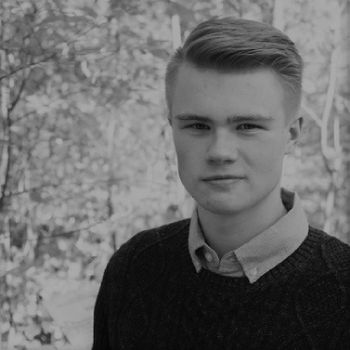Do universities control students' political speech? A new report suggests they do.
FIRE highlighted several universities for their speech policies in a recent report that outlines how those schools utilize 'prior-restraint' measures to limit students' political action.
Campus Reform spoke to an expert from FIRE about the restricftions at Tufts University.
Colleges and universities use sets of “prior-restraint” policies to chill free speech and limit political expression, a national nonprofit claims.
The Foundation for Individual Rights in Education’s recent report, “Spotlight on Speech Codes 2022,” condition students’ speech using “prior restraints,” which the organization defines as policies “requiring students and student organizations to register their expressive activities well in advance and, often, to obtain administrative approval for those activities.”
FIRE Policy Reform Director Laura Beltz singles out Tufts University in a Dec. 13 statement for having a particularly chilling policy regarding political leaflets.
The stated purpose of the Tufts policy in question is to regulate “commercial activity and/or solicitations on the campus,” but the range of activity regulated by the university includes “political leafleting or solicitation.”
“Tufts’ policy is bad on two levels,” Beltz told Campus Reform.
“For one, it controls what expression students may engage in by banning ‘profanity or explicit sexual material’ in chalking on campus, and it also controls how students express themselves, by requiring advance permission for any solicitation, including political leafleting,” she said.
[RELATED: NDSU president laments lack of ‘legally permissible tools’ to fight ‘hate speech’]
“It’s not uncommon to see one or the other,” Beltz continued, “but the presence of both of those issues in one policy makes it stand out, and we featured it in our latest Spotlight on Speech Codes report for that reason.”
Another school cited in the report is Rice University, where students must check with the campus police department “at least 48 hours in advance of the activity to request permission” before holding a demonstration.
This policy received a “yellow light” rating in the FIRE database, which assigns colors based on school’s treatment of free speech.
[RELATED: Campus Profile: Rice University]
FIRE also highlights Fort Hays State University, which maintains a policy suggesting that students “wishing to express their concerns should confer with the Vice President for Student Affairs regarding procedural policy and appropriateness of their proposed actions.”
Among the 107 private schools reviewed by FIRE, 41.1% received a “red light” speech code rating, maintaining policies with clear and substantial restrictions on free speech, and another 50.5% were rated “yellow light” because of vague policies that could be abused.
“A total of 44 private colleges and universities — out of the 107 FIRE reviewed — maintain regulations on the posting and distribution of written materials that pose unreasonable restrictions on free speech,” Beltz said. “These private colleges need to actually live up to their promises of free speech and revise their policies to meet First Amendment standards.”
A spokesman for Rice University declined to comment. Tufts University and Fort Hays State University did not respond to Campus Reform’s requests for comment.

